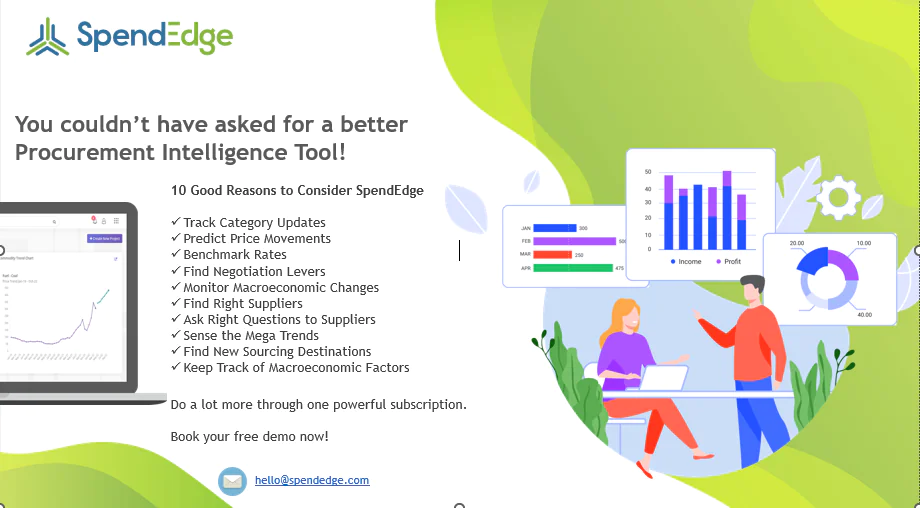Supplier risk management is a critical element of a resilient supply chain strategy, focusing on identifying, assessing, and mitigating risks that arise from external supplier relationships. This practice is crucial for businesses seeking to maintain operational continuity, regulatory compliance, and protect their reputation against supply chain disruptions. As companies increasingly face a complex global supply chain landscape, having a robust supplier risk management framework in place becomes indispensable. This blog discusses how effective supplier risk management strategies, including continuous monitoring, supplier audits, and diversification, help businesses navigate potential risks and enhance overall supply chain resilience.
What is supplier risk management?
The practice of supplier risk management entails control of potential risks that may arise from engaging with external suppliers. This crucial function forms an integral part of an organization’s comprehensive risk management framework, serving to safeguard against supply chain disruptions, avert quality-related issues, and mitigate financial exposure. Through the meticulous identification and evaluation of risks linked to supplier relationships, enterprises can adeptly devise and execute appropriate strategies to mitigate potential threats while concurrently enhancing the resilience of their overall supply chain.
Different types of supplier risk management
-
Operational risk involves potential disruptions to a company's day-to-day activities caused by supplier failures. These disruptions can stem from issues like production delays, quality control problems, or logistical breakdowns.
-
Financial risk pertains to the economic stability and solvency of suppliers. It includes the risk of a supplier going bankrupt or experiencing financial distress, which can impact their ability to deliver goods and services.
-
Reputational risk arises when a supplier's actions negatively impact the buying company’s reputation. This can result from unethical practices, quality failures, or social and environmental violations.
-
Legal risk involves the potential for legal consequences due to non-compliance with laws and regulations by suppliers. This can include breaches of contract, violations of labor laws, and non-adherence to industry standards.
-
Environmental, Social, and Governance (ESG) risk focuses on a supplier's adherence to sustainable and ethical practices. This includes environmental impact, labor practices, and corporate governance.
-
Supply continuity risk pertains to the uninterrupted availability of goods and services from suppliers. Factors contributing to this risk include natural disasters, geopolitical issues, and supplier capacity constraints.
Importance of supplier risk management
1. Identification of risks
There are various types of risks associated with suppliers, such as compliance risk, reputational risk, operational risk, financial risk, strategic risk, and more. This is why implementing a supply chain risk management strategy is the initial crucial step for companies to proactively identify and address the risks that could impact their operations, growth, and sustainability.
2. Helps in structuring a plan to mitigate associated risks
Supplier risk management is essential for identifying potential risks and developing effective mitigation strategies. Companies can create comprehensive plans to address supply disruptions, financial instability, and quality control failures by assessing and understanding the risks posed by suppliers.
3. Ensures adherence to internal compliance and reporting
Effective supplier risk management ensures that suppliers comply with internal standards and regulatory requirements. By conducting regular audits, compliance checks, and performance evaluations, companies can verify that their suppliers adhere to contractual obligations and industry regulations.
4. Improves supply chain resilience
A robust supplier risk management strategy enhances the resilience of the supply chain by preparing for unexpected disruptions. By diversifying the supplier base, establishing contingency plans, and continuously monitoring supplier performance, companies can quickly adapt to changes and recover from supply chain shocks.
Ready to minimize supplier risks and optimize your supply chain? Reach out to SpendEdge for tailored solutions…
Proactive steps to handle risks: Supplier Risk Management
Step 1: Assessing and analyzing potential vulnerabilities within the supply chain
Identifying and assessing risk involves recognizing potential uncertainties or events that could affect organizations’ goals or projects, and then assessing their likelihood and potential impact. The evaluation of relevant risks must be extensive and should include both the supplier and the location where they provide manufacturing or services. Moreover, it is essential to secure suitable visibility and confirmation from the organization’s immediate supplier concerning their vital supporting suppliers, due to potential for disruptions or damage to reputation that they might pose.
Step 2: Measuring risk informs smart business choices
Supplier risk quantification involves assessing the potential impact and probability of risks. This process helps organizations prioritize and manage risks effectively by assigning numerical values to different risk factors, such as disruptions, delays, or shortages. There are instances where a supplier might possess strong financial stability, yet it is essential to highlight situations where their manufacturing facility faces significant threats such as natural disasters or geopolitical challenges.
Step 3: Strategies to reduce risk leading to business success
Recognizing specific risk factors is vital for the organizations. The process of assigning measurable values to the various risks present within a supply chain in important. This involves assessing factors such as the probability of a risk event occurring, the potential impact it could have on operations, finances, and reputation, as well as the interconnectedness of risks within the entire supply chain network. By quantifying these risks, organizations can prioritize mitigation strategies, allocate resources more effectively, and make informed decisions to enhance the resilience.
Step 4: Dealing with supply chain disruptions and restoring operations
Responding to supply chain disruptions involves identifying the root causes, assessing the impact, and implementing strategies like diversification, inventory management, and communication with the stakeholders. To recover from uncertainties, companies can prepare a contingency plan to deal with the unexpected interruptions in the businesses, as well as adjust processes, building redundancy, and leveraging technology to enhance flexibility and resilience.
How SpendEdge can help with Supplier Risk Management
1. More precise updates directly result in a more efficient supply chain
Our procurement advisors provide expert guidance and recommendation to businesses while making purchasing decisions. Our specialist advisors help clients in staying updated on supplier performance. This includes monitoring factors such as supplier capabilities, disruptions, regulatory changes, and the global market shift that could impact the supply chain.
2. Develop effective strategies and solutions for supplier risk management
Our experts help in developing streamlined approach on sourcing, vendor selection, contract negotiation, and cost managements. Our advisors also help identifying the potential risks impacting the organization’s procurement processes, asses their impact and likelihood, and develop strategies to minimize or eliminate them.
3. Proactive stance toward addressing risks from multiple dimensions of suppliers
D-Risk, an innovation by SpendEdge, serves as a valuable resource for assessing and controlling supplier risks. Our procurement experts employ this tool to aid businesses in appraising and alleviating potential supplier-related risks. This involves scrutinizing internal and external risk factors, geopolitical influences, operational stability, and expenses, as well as reputation concerns. Our advisors also possess the capability to assist in analyzing supplier financial data, delivering into their management of revenue and cash flows during periods of economic growth and favorable trends.
How our professional experts at SpendEdge can help?
SpendEdge offers a wide range of services and solutions designed to address various supplier-related risks and greatly improve supplier risk management.
Risk Identification and Assessment:
SpendEdge conducts comprehensive evaluations of suppliers' operational, financial, reputational, legal, ESG, and supply continuity risks. This involves examining financial stability, compliance records, and operational capabilities to pinpoint potential vulnerabilities impacting the supply chain.
Continuous Monitoring:
SpendEdge provides ongoing monitoring of supplier performance and market conditions through real-time data analytics and market intelligence. This enables companies to stay abreast of any changes in supplier status, allowing for proactive risk mitigation.
Supplier Audits and Compliance Checks:
Regular audits and compliance checks are crucial for ensuring suppliers adhere to contractual obligations and industry regulations. SpendEdge delivers detailed audit reports and compliance assessments, assisting companies in upholding high standards and steering clear of legal and reputational risks.
Diversification Strategies:
SpendEdge offers advice on diversification strategies to reduce dependency on single suppliers. This involves identifying and bringing onboard alternative suppliers, establishing a resilient supply chain capable of withstanding disruptions.
Sustainability and ESG Practices:
SpendEdge prioritizes sustainable and ethical sourcing by evaluating suppliers’ ESG practices. We provide insights into suppliers’ environmental and social impact.
Success Story: How SpendEdge helped a pharmaceutical client
Our client is a global pharmaceutical company that produces a wide range of prescription medicines and over-the-counter drugs. The client operates in a highly regulated environment where product quality and safety are of utmost importance. To ensure consistent quality and compliance with regulations, the company relies on a network of suppliers for various raw materials, active pharmaceutical ingredients (APIs), and packaging materials.
The client is in need for effective supplier risk management to mitigate these potential supply chain risks, as pharmaceutical industry is prone to various risks, including disruptions in supply chain, regulatory non-compliance, quality issues, and geopolitical uncertainties. A single supplier failure or quality lapse could lead to significant financial losses and reputational damage.
Our procurement advisors developed a rigorous supplier selection process that helped the client in evaluating potential suppliers based on their financial stability, functional capabilities, regulatory compliance history, quality management practices, and ability to meet the client’s requirements. Our advisors also categorized potential risks into different levels of severity and established strong relationships with key suppliers, fostering open communication and collaboration.
Our experts implemented a monitoring system to track supplier performance, financial health, and regulatory compliance in real-time. Furthermore, they diversified client’s supplier base for critical materials. Additionally, our experts implemented redundancy measures to swiftly transition to alternative suppliers, when necessary, as means to alleviate potential risks.
The risk management solutions offered by our experts helped the pharmaceutical client to reduce risk exposure, enhance compliance, develop agile response to issues, strengthen partnerships, and minimize financial losses.

Empower your organization with robust supplier risk management strategies. Reach out to SpendEdge now to explore customized solutions that enhance supply chain resilience and ensure long-term success…
Conclusion
Supplier risk management is an essential component of a robust and resilient supply chain. By identifying, assessing, and mitigating various risks associated with suppliers, organizations can ensure the continuity of their operations, maintain regulatory compliance, and protect their reputation. SpendEdge offers comprehensive solutions that help companies proactively manage supplier related risks, enhancing their overall supply chain efficiency and resilience. Through continuous monitoring, supplier audits, diversification strategies, and a focus on sustainability and ESG practices, SpendEdge empowers businesses to navigate the complexities of the global supply chain landscape effectively.




